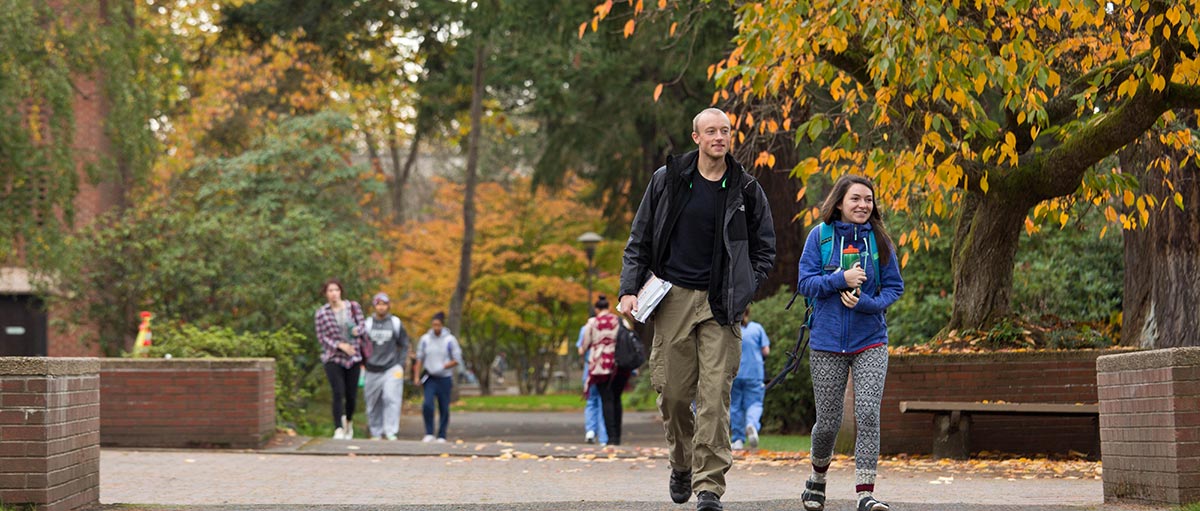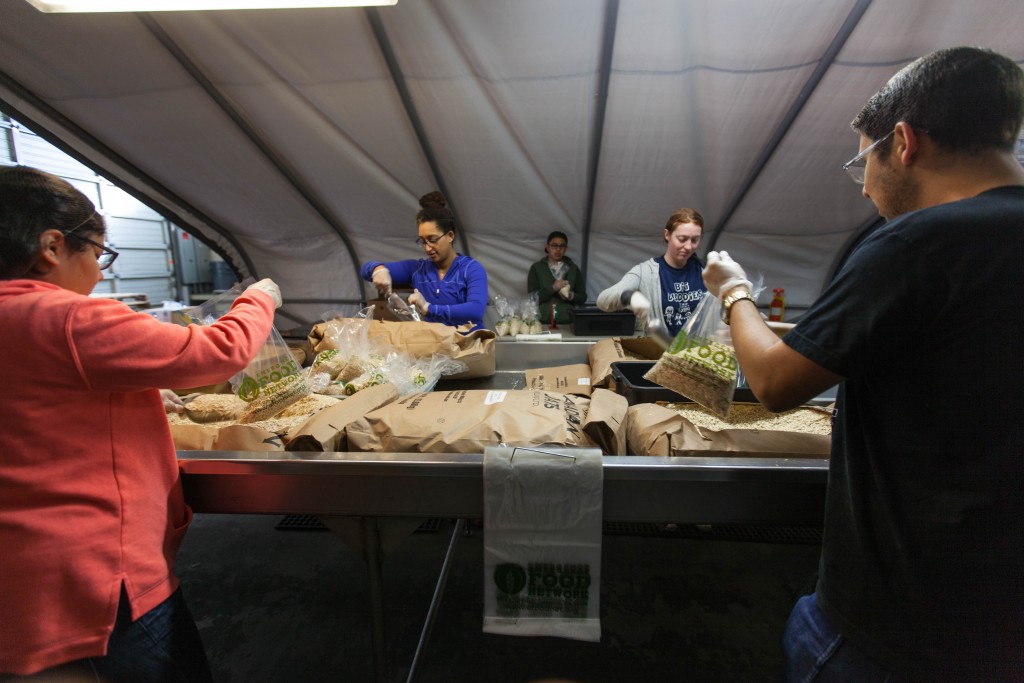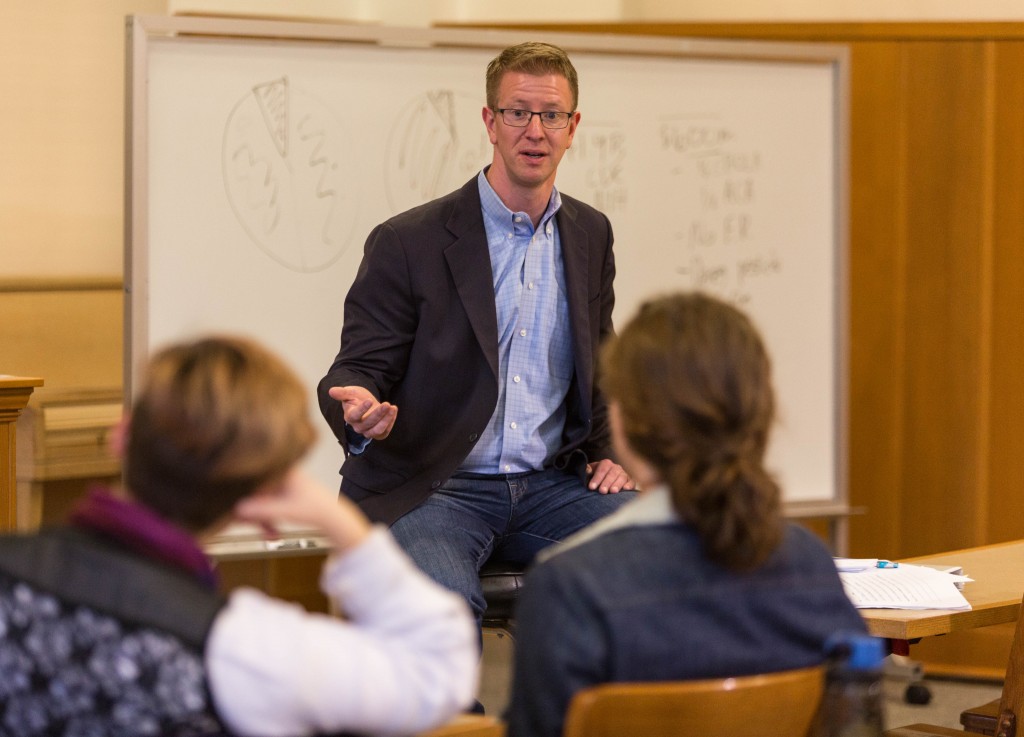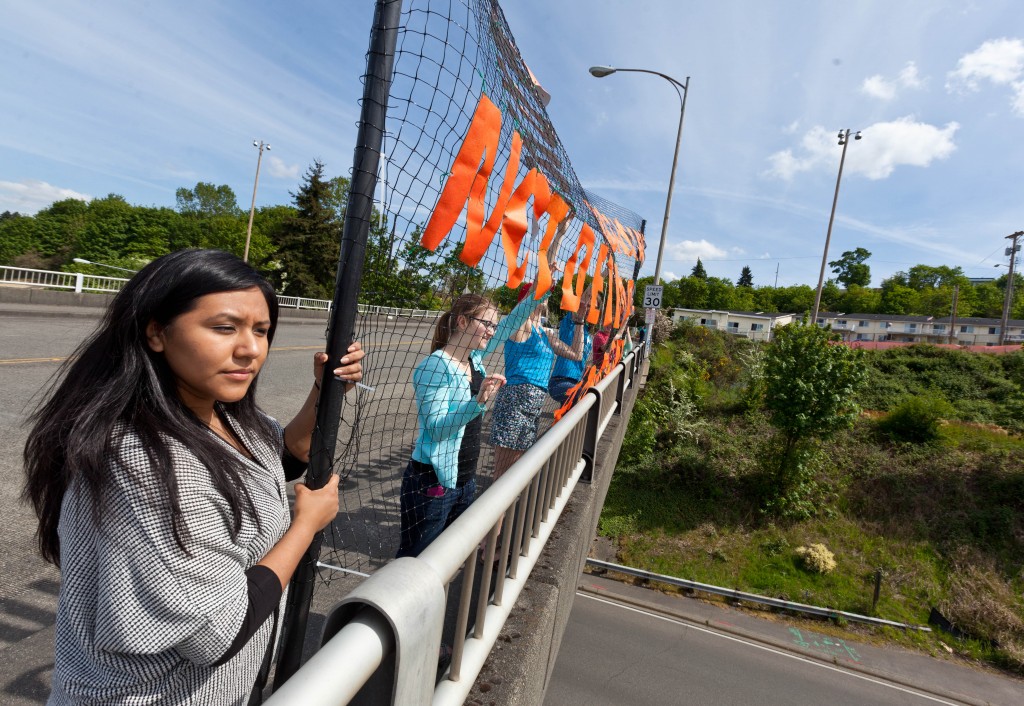What election season reminds us about higher education

Image: (Photos by John Froschauer/PLU)
Each election cycle I’m reminded of how incredibly multi-disciplinary the responsibilities of our elected officials have become. Similarly, the challenges faced by the leaders of the world’s most successful corporations and NGOs grow ever more global, complex, and nuanced, seemingly by the day.
Very few, if any, of the world’s most urgent dilemmas can be solved without broad, multifaceted expertise. Addressing climate change requires business savvy. Understanding modern racial unrest takes an understanding of American and world history. International diplomacy is often informed by religious traditions. Some of the most successful business managers are experts in psychology.
Yet, despite these realities, far too many American universities are neglecting to provide an integrated education—an education that fuses the liberal arts, professional studies and civic engagement—to their undergraduate students. And while voters, shareholders and governing boards continue to affirm leaders with robust multi-sector knowledge and a track record of civic engagement, far too many universities are trending in the opposite direction, decreasing their emphasis on general education and interdisciplinary studies, and creating fast track curriculums focused solely on a highly specialized degree.
Simply put, a college curriculum that is not open to many sources of knowledge and methods of study runs a dangerous risk of limiting the leadership and inventiveness of the young people upon whom our world will soon be depending. Innovation requires knowledge of human trajectory, and institutions trending towards present and future focused, monodisciplinary curriculums are demonstrating a fundamental misunderstanding of this reality.
History, as well as the rapidly increasing rate of social and technological change, assures us that a substantial percentage of today’s students will spend the majority of their careers doing jobs that currently don’t exist. We also know that a mere 27 percent of bachelor degree holders serve in positions related to the field they studied and that 26 percent of college graduates change careers within five years of graduating. For those to whom job preparation is paramount, there should be no greater realization than the importance of illustrating the value of widely transferable knowledge and interdisciplinary understanding.
It is one thing to offer general education courses. It is quite another to integrate the range of disciplines and design an educational experience that makes clear to students what their business management course has to do with their anthropology course, and what their anthropology and business courses have to do with the weekend they spent volunteering at a food bank, and what all three experiences have to do with the course of their future careers.
Faculty members I talk to often say that meeting the challenge of “naming” the value of their disciplines to nonmajor and undecided students is crucial to how such students engage their courses. Some say they do this by telling origin stories or the greatest historical accomplishments of their field. Others point to the elements of their discipline that are highly sought after by employers across all sectors. When students can discern the value specific to their aspirations in their general education courses, faculty members say, that’s when they more readily embrace new ideas and foreign concepts.
Even with a complimentary and dynamic assortment of general education courses, a truly integrated education is not complete without thoughtfully designed programs that require students to engage with the sorts of civic dilemmas they are studying in the classroom. Students who participate in civic engagement benefit from increased emotional intelligence and interpersonal effectiveness, gain the ability to collaborate across diverse perspectives, and become motivated toward conscientious community action.
Students who participate in civic engagement learn more academic content through application of theoretical concepts to action. This causes students to shift from being knowledge receivers to idea creators. Abstract concepts come into relief against the background of real situations and context. Furthermore, civically engaged students learn higher-order skills—including critical thinking, writing, communication, mathematics, and technology—at more advanced levels of aptitude.
Through civic engagement, knowledge and insight no longer exist in the life of the mind; they become coalesced in mindful and caring community involvement. By conjoining the academic knowledge and skills necessary to address community needs, students deepen and extend their learning. Additionally, individuals who are active volunteers have 27 percent higher odds of finding a job than those who are not. As universities seek to provide students with every edge possible in procuring employment following graduation this distinct advantage must not be ignored.
If we are to have journalists who are capable of accurately reporting on modern environmental issues, it should go without saying that our journalism students might benefit from taking advantage of natural science courses and ought to graduate with experience engaging the sorts of communities that are most often affected by environmental catastrophes.
Similarly, if we are to have internet software developers who understand the principles of information privacy and access, it follows that our computer engineering students would benefit from courses in philosophy, and the increased empathy and understanding that comes from engaging low-income communities that lack access to high-speed internet services.
Of course we know that two or three 200-level courses in geology will not make a journalist-to-be fluent in climate change, and that simply pass-failing “Ethics and the Good Life” and “Social and Political Philosophy” cannot be the end-all-be-all of a web engineer’s code of ethics. But we also know that a high quality, liberal arts education has always been, and will always be, the foundation on which genuine expertise is built.
I once heard an African-American artist from Chicago lament that far too many young people graduate from public high schools having never been taught how to grow vegetables. What lesson in science, he wondered aloud, could be more valuable and contribute more to a healthy, sustenance-filled life?
I think his criticism is keen and astute, and, if I may borrow his model, my lament is that far too many young people are earning degrees from American universities without having been taught to critically examine the world around them through the lenses of multiple academic disciplines crossing the boundaries between the liberal arts and professional disciplines and without having engaged communities different from the ones they grew up in.





